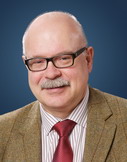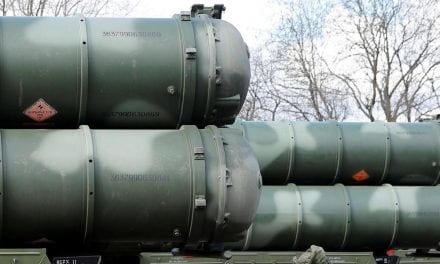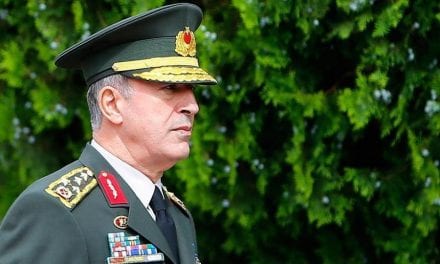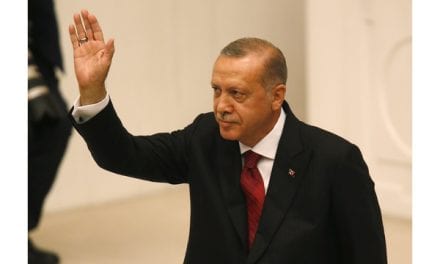By Brad Plumer, Washington Post
Dmitri Trenin is the director of the Carnegie Moscow Center, where he chairs the center's research council and the Foreign and Security Policy Program. He's written a number of articles over the years trying to make sense of Russian ties to Syria and Russia's position on the Syria civil war. We spoke by phone Wednesday.
Brad Plumer: I'm sure you saw Vladimir Putin's op-ed in the New York Times this morning about Syria. What is he trying to achieve here? What are Russia's goals with this latest deal for Syria to turn over its chemical weapons?
Dmitri Trenin: At a minimum Russia wants to achieve U.S. non-intervention in Syria. The medium-term goal here, although it's pretty high up, is resolution of the Syrian issue, with some kind of political resolution. But the larger goal, the really big goal is forcing the United States back into the U.N. Security Council-centered international system.
There were many things that struck me in that op-ed, an it's hard to deconstruct or summarize in a sentence. I think Putin is basically saying something that a lot of people will find objectionable — that the United States has been soaring above international law and it’s time the country to return inside the framework of international law as codified by the United Nations charter, especially with the Security Council.
BP: Okay, let's break those down. Why is U.S. non-intervention so important for Russia here?
DT: I think Putin believes that an inertia can be created that would lead to progressively more and more U.S. actions around the world which might collide at some point with Russia's core interests, to use a Chinese expression. They want to stop the use of force by the United States outside of the U.N. Security Council framework. They're trying to keep a hold on the use of force internationally.
BP: Isn't that a little hypocritical? When Russia launched a war with Georgia in 2008 it didn't go through the Security Council framework.
DT: I think that Mr. Putin would say to that in Georgia we acted in response to an aggression committed against our forces. So we were acting in accordance with Article 51 of the UN Charter. And Putin has said before that the United States does not face any threat of an aggression from Syria.
BP: There's been a lot written, including by you, about the longstanding ties between Russia and Syria that go back decades. Is Syria itself important to Russia here, or is Putin mainly just focused on constraining the United States?
DT: Syria is marginally important. It's important as a market for Russian arms. But Russia is not involved in the geopolitics of the Middle East the way the Soviet Union was, so Syria's not important as a foothold in geopolitical terms. There are some other things like the Tartus naval facility [a naval station in Syria and Russia's only resupply spot on the Mediterranean], but I would say they are relatively marginal in Russia's thinking here.
BP: So it seems like Russia is mainly stepping in here because they're worried that the U.N. Security Council will become irrelevant in foreign policy decisions?
DT: Yeah, it's happened before. Russia was left out of Iraq, Russia was left out of Libya, although Libya it didn't have much of a position. They are concerned that if Russia is eased out of Syria that will reflect badly on Russia's international image abroad or on Putin's foreign policy at home.
BP: You mentioned that Russia is concerned that U.S. interventions in the Middle East or elsewhere might eventually clash with the country's "core interests." Are there specific worries there or is this more of an abstract general fear?
DT: Well I think that they've been thinking of former Soviet republics as areas where the United States might eventually become involved. Places like Belarus. It looks far-fetched, and seems far-fetched, but those are definitely places where the Russians would not want to see the U.S. do anything militarily.
But I think Putin is really more concerned with this inertia of using military power to solve political issues. And of course Russia has no parity in conventional military terms with the United States.
Militant Islamist groups are seen as a big concern by the Russians. They think that the longer the war in Syria continues, the worse off everyone including Russia will because of the militants gaining ground. And that's something that could come back to Russia itself, absolutely.
BP: So why is the U.N. Security Council itself so important to Russia? Is it just because this is the one are where they can constrain U.S. power?
DT: Russia thinks its veto right at the Security Council as perhaps the only thing that can prevent activities that Russia strongly dislikes and disapproves of by making them illegal. That’s the only instrument that it has. It has nuclear weapons, yes, but in real life you can not use deterrence, certainly not often. The veto threat is something you can use quite often if you need to.
BP: So there's this deal where Russia will help take control of Syria's chemical weapons and eventually destroy them. How do you see this playing out?
DT: This whole business with chemical disarmament is exceedingly difficult. They're in uncharted waters and we don't know how this will turn out. It's never been done before. It's never been thought of as a procedure to be undertaken under conditions of civil war. So it's exceedingly difficult. Whether they put it off or not is a big, big, question of mine. But I think in Putin’s view and in many others, that’s the one option that’s better than the others.
BP: And you mentioned Russia is looking for a political resolution in Syria. How is that likely to work?
DT: I think they see the chemical frame as something that leads to a wider political frame. In a way you cannot treat the two separately, you have to ensure a ceasefire in the areas where chemical weapons are kept in order to proceed with the mission. So that calls for the beginning of political process. But this is really the first time that Russians have tried anything like that.
Interview has been lightly edited for length and clarity


















